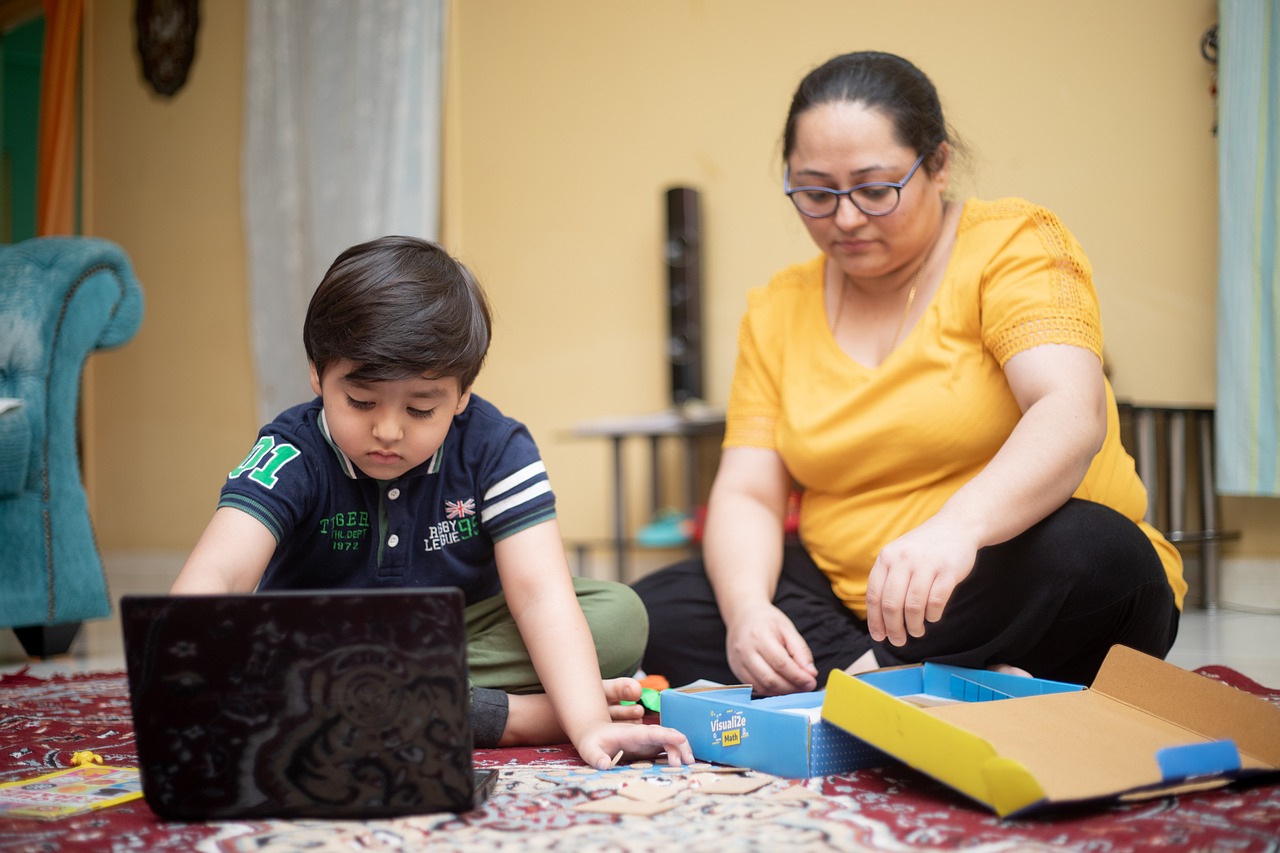Be Cautious - Frauds in the Name of Online Love
In our increasingly digital world, the quest for love has taken many of us online, transforming how we connect with others. However, amid the excitement of finding a potential partner, there lurks a darker reality: the rise of online love scams. These fraudulent schemes prey on vulnerable individuals seeking companionship, often using sophisticated tactics to manipulate emotions and exploit trust. It's essential to understand the alarming trends surrounding these scams, as they can lead to devastating emotional and financial consequences. In this article, we will explore the mechanics of these scams, the warning signs to watch for, and the proactive steps you can take to protect yourself from becoming a victim.
Understanding the increasing prevalence of online love scams is crucial. According to recent statistics, reports of romance scams have surged, with victims losing millions of dollars each year. The Federal Trade Commission (FTC) reported that in 2022 alone, Americans lost over $1.3 billion to these scams, a staggering increase from previous years. The anonymity of the internet allows scammers to operate without fear of detection, making it easier for them to create fake profiles and lure unsuspecting victims into their web of deceit. As more people turn to online dating platforms, the potential for encountering a scammer also rises, making awareness and education essential for anyone navigating the world of digital romance.
Scammers employ various tactics to deceive their victims, often starting with the creation of a seemingly perfect online persona. They might use stolen images of attractive individuals, coupled with fabricated backgrounds that paint a picture of an ideal partner. Once they establish contact, they begin to manipulate emotions, using flattery and charm to gain the victim's trust. Here are some common methods:
- Fake Profiles: Scammers often create profiles using stolen images and fictitious information to gain credibility.
- Emotional Appeals: They exploit emotional vulnerabilities, claiming to be in distress or needing help.
- Urgency Tactics: Scammers create a false sense of urgency, pushing victims to act quickly without thinking.
Creating fake identities is a hallmark of online love scams. Scammers often steal images from social media or professional websites, using them to construct a false persona that is appealing and trustworthy. They may claim to be military personnel stationed overseas or successful professionals who are looking for love. This deception is not just about creating a pretty face; it’s about crafting a story that resonates with the victim's desires and dreams. As victims become emotionally invested, it becomes increasingly difficult to recognize the truth behind the facade.
Once a scammer has established contact, they often resort to emotional manipulation techniques. They may share fabricated personal stories that tug at the heartstrings, creating a false sense of intimacy. By sharing supposed hardships, they elicit sympathy and build rapport. This emotional bond can cloud the victim's judgment, making it hard for them to see the red flags that might signal a scam. It's crucial to remain vigilant and question the authenticity of the relationship, especially when things seem too good to be true.
After gaining the victim's trust, financial exploitation typically follows. Scammers are adept at crafting elaborate stories that justify their requests for money. These can range from claims of a medical emergency to a sudden need for funds to cover travel expenses. In some cases, they may even propose investment opportunities that promise high returns, all designed to siphon money from their victims. The emotional investment makes it hard for victims to refuse these requests, often leading to devastating financial losses.
Identifying red flags is essential to avoid falling victim to online love scams. Here are some key warning signs to watch out for:
- Profiles with few photos or information.
- Requests for money or financial help.
- Inconsistent stories or details.
- Pressure to communicate through private channels.
Taking proactive measures can significantly reduce the risk of falling prey to online love frauds. Here are some practical tips for safeguarding your personal information and emotional well-being:
Implementing safe online dating practices is vital. Always create secure profiles with minimal personal information, and be cautious about sharing details too soon. When communicating, use the platform's messaging system rather than moving to private channels until you feel comfortable. If you decide to meet in person, choose a public place and inform a friend or family member about your plans. Remember, if something feels off, trust your instincts and proceed with caution.
If you suspect you’ve encountered a scam, knowing how to report it is crucial. Most dating platforms have procedures for reporting suspicious activity. Additionally, you can report scams to the FTC or your local consumer protection agency. Seeking support from friends, family, or professional counseling can also help you process your experience and regain your confidence.
Q: How can I tell if someone is a scammer online?
A: Look for inconsistencies in their stories, reluctance to meet in person, and requests for money. Trust your instincts.
Q: What should I do if I think I’ve been scammed?
A: Report the scam to the platform, the FTC, and your local authorities. Seek support from friends or professionals if needed.
Q: Can online love scams be prosecuted?
A: Yes, many scammers are prosecuted, but it can be challenging due to their often international operations. Reporting helps authorities track these crimes.

The Rise of Online Love Scams
The digital age has revolutionized the way we connect with others, but it has also opened the floodgates for a disturbing trend: online love scams. These scams have proliferated at an alarming rate, with statistics indicating a significant rise in reported cases over the past few years. According to the Federal Trade Commission (FTC), losses from romance scams exceeded $1.3 billion in just one year, showcasing the financial devastation these fraudsters can inflict. As more individuals turn to online dating platforms, the potential for encountering these scams has never been higher.
Understanding the mechanics of these scams is crucial for anyone navigating the world of online relationships. Scammers often prey on the vulnerable, exploiting the emotional desire for love and companionship. They create elaborate narratives, often involving fake profiles filled with stolen images and fabricated backstories, designed to tug at the heartstrings of unsuspecting victims.
Recent trends have shown that the demographic of victims is widening. While older adults have traditionally been the primary targets, younger individuals are increasingly falling prey to these deceptive tactics. This shift emphasizes the need for vigilance across all age groups. Scammers are becoming more sophisticated, utilizing advanced technology to create convincing personas that can easily deceive even the most cautious individuals.
To illustrate the growing threat, consider the following statistics:
| Year | Reported Cases | Financial Losses (in billions) |
|---|---|---|
| 2019 | 21,000 | $0.5 |
| 2020 | 25,000 | $0.9 |
| 2021 | 42,000 | $1.3 |
| 2022 | 50,000 | $1.5 |
This table clearly illustrates the upward trajectory of both reported cases and financial losses, underscoring the urgent need for awareness and education about online love scams. As these fraudsters become more adept at manipulating emotions and exploiting vulnerabilities, it is imperative that individuals equip themselves with knowledge to recognize the signs of a scam before it's too late.
In conclusion, the rise of online love scams poses a serious threat to anyone seeking genuine connections in the digital world. By understanding the tactics employed by scammers and remaining vigilant, individuals can protect themselves from falling victim to these heart-wrenching frauds. The next sections will delve deeper into the common tactics used by these fraudsters, the red flags to watch for, and how to safeguard yourself in the online dating landscape.
- What are online love scams? - These are fraudulent schemes where scammers create fake profiles on dating sites to exploit individuals emotionally and financially.
- How can I recognize a love scam? - Look out for inconsistencies in communication, reluctance to meet in person, and requests for money.
- What should I do if I suspect a scam? - Report the profile to the dating site and consider informing local authorities.
- Can anyone be a victim of online love scams? - Yes, scammers target individuals of all ages and backgrounds, so it's essential to stay informed and cautious.

Common Tactics Used by Scammers
When it comes to online love scams, the tactics employed by fraudsters can be as varied as they are deceptive. Understanding these methods is your first line of defense against becoming a victim. Scammers are often skilled manipulators who know how to exploit human emotions, creating an illusion of genuine connection. Their ultimate goal? To gain your trust and, eventually, your money.
One of the most prevalent tactics involves the use of fake profiles. Scammers often create elaborate identities using stolen images from social media or even professional modeling sites. These profiles are designed to appear attractive and trustworthy, making it easier to lure unsuspecting individuals into their web. Imagine scrolling through a dating app and coming across a profile that seems too good to be true—chances are, it just might be. The allure of a perfect partner can cloud your judgment, but recognizing that many of these profiles are fabricated is crucial.
Creating fake identities is not just about using attractive photos; it also involves constructing a believable backstory. Scammers often claim to be from another country, which adds an air of mystery and makes the victim feel special for being chosen. They might share compelling stories about their lives, often involving professions that evoke admiration, such as military personnel or doctors working abroad. This tactic plays on the victim's desire for a romantic adventure, making them more susceptible to manipulation.
Once trust is established, scammers employ emotional manipulation techniques to deepen the connection. They may use flattery, compliments, and promises of love to create a false sense of intimacy. Scammers are adept at reading their victims' emotional states, often mirroring their feelings to create a bond. For instance, they might share personal stories that evoke sympathy or vulnerability, making it harder for victims to see the red flags. This emotional tug-of-war can leave individuals feeling deeply connected, even if they've never met in person.
Moreover, urgency is another tool in a scammer's arsenal. They may create scenarios that require immediate action, such as a sudden health crisis or a financial emergency. This tactic is designed to pressure the victim into acting quickly, often leading to hasty decisions that they wouldn’t normally make. For example, a scammer might say, "I need $5,000 for surgery; I promise to pay you back as soon as I'm well!" The emotional weight of such a request can be overwhelming, making it difficult for victims to think clearly.
After establishing a bond, the final phase of the scam often involves financial exploitation. Scammers have numerous ways of requesting money, ranging from fake emergencies to elaborate investment schemes. Some may ask for help with travel expenses to visit the victim, while others might invent a story about needing funds to unlock a large inheritance. The emotional groundwork laid earlier makes it easier for victims to justify these requests, often leading to devastating financial losses.
It's important to be aware of the different types of financial requests that scammers might make. Here are some common strategies:
- Emergency Requests: Claims of urgent medical or legal issues that require immediate funds.
- Investment Opportunities: Promises of high returns on investments that require initial funding.
- Travel Expenses: Requests for money to cover costs associated with visiting the victim.
By understanding these tactics, you can better protect yourself from falling into the trap set by online love scammers. Remember, if something feels off or too good to be true, it probably is. Trust your instincts, and don't hesitate to seek advice from friends or family if you're unsure about an online relationship.
Q: How can I tell if someone is a scammer?
A: Look for inconsistencies in their stories, reluctance to meet in person, and requests for money. Trust your gut feeling!
Q: What should I do if I suspect I'm being scammed?
A: Cease all communication with the individual, report the profile to the dating site, and consider contacting local authorities.
Q: Are there any resources available for victims of online love scams?
A: Yes, organizations like the Federal Trade Commission (FTC) and local consumer protection agencies offer resources and support for victims.

Fake Profiles and Identity Theft
In the digital age, the allure of online dating has become irresistible for many seeking love or companionship. However, lurking behind the enticing profiles and charming messages are scammers who craft fake identities with the sole intention of exploiting unsuspecting victims. These fraudsters are not just tech-savvy; they are adept at psychological manipulation, using stolen images and fabricated backgrounds to create a facade of authenticity. Imagine scrolling through a dating app and coming across a profile that seems perfect—captivating photos, intriguing bios, and messages that resonate with your deepest desires. It’s easy to get swept away, but this is precisely what scammers rely on.
So, how do they pull this off? Scammers often use stolen photographs from social media or professional websites, presenting themselves as someone entirely different. They curate their online personas meticulously, selecting images that evoke trust and attraction. This can be anything from a handsome soldier stationed overseas to a glamorous entrepreneur living the high life. The aim is to create a sense of emotional connection before any red flags arise. A recent study revealed that approximately 30% of online dating profiles are suspected to be fake, which highlights the need for vigilance in digital romance.
Once a scammer has established a fake profile, they often proceed to build a rapport with their target. This involves engaging in lengthy conversations, sharing personal stories, and even exchanging intimate details to foster a sense of closeness. This emotional investment makes it increasingly difficult for victims to see the truth, as they become emotionally attached and vulnerable. They may even ignore or rationalize any odd behaviors, such as reluctance to meet in person or inconsistencies in their stories. It’s like being caught in a web of deceit, where every thread is woven with lies.
To further illustrate the extent of identity theft in online dating, consider the following table, which outlines common tactics used by scammers:
| Tactic | Description |
|---|---|
| Stolen Photos | Using images of real people without their consent to create a fake profile. |
| Fake Backgrounds | Crafting elaborate stories about their lives, often claiming to be in high-risk jobs or living abroad. |
| Manipulative Messaging | Sending messages designed to evoke sympathy or urgency, prompting emotional responses. |
As you navigate the world of online dating, it's vital to be aware of these tactics and approach interactions with a healthy dose of skepticism. Remember, if something feels off, it probably is. Always verify the identity of individuals you meet online through reverse image searches or by asking for video calls. Being proactive can save you from the heartbreak and financial loss that often accompany these scams.

Emotional Manipulation Techniques
Online love scams are not just about stealing money; they often involve a deep and insidious form of emotional manipulation. Scammers are experts at exploiting emotional vulnerabilities, making them highly skilled at creating a false sense of intimacy. Imagine this: you meet someone online who seems to understand you better than anyone else, sharing your dreams, fears, and desires. This is no accident; it's a carefully crafted strategy designed to draw you in.
One of the most common techniques used by these fraudsters is the love bombing approach. They shower their targets with affection, compliments, and promises of a future together, often within a matter of days. This overwhelming attention can make you feel special and desired, clouding your judgment. As a result, you may overlook the warning signs that something is amiss.
Another tactic is the use of emotional urgency. Scammers create scenarios that evoke strong emotional responses, whether it's a fabricated health crisis or a sudden financial emergency. They skillfully manipulate your feelings, prompting you to act quickly without thinking. For example, they might say, "I need money for my surgery, or I might not make it!" In these moments, the emotional weight of the situation can easily lead you to make irrational decisions.
Moreover, many scammers employ the technique of mirroring. They reflect your emotions and interests back at you, making you feel as though you share a profound connection. This can create a false sense of trust and intimacy. If they know you love hiking, for instance, they might share stories about their own hiking adventures, even if those stories are entirely fabricated. This mirroring can make it incredibly challenging to spot the deceit.
In addition to these tactics, scammers often use isolation as a means of control. They may encourage you to keep your relationship a secret from friends and family, stating that they would not understand. This isolation can make you more dependent on them, further entrenching their emotional grip. You might find yourself in a situation where you feel you can’t talk to anyone about your relationship, making it easier for the scammer to manipulate you.
Recognizing these emotional manipulation techniques is crucial for protecting yourself. Always ask questions and be wary of anyone who seems too good to be true or who pushes you to act quickly. Remember, real love grows gradually and is built on trust and mutual respect, not emotional pressure.
- What should I do if I suspect I'm being scammed? If you feel something is off, trust your instincts. Stop all communication and report the scammer to the platform you met them on.
- Can I get my money back if I've been scammed? Unfortunately, it's often difficult to recover lost funds, but you should report the scam to your bank and local authorities.
- How can I protect myself from online love scams? Always conduct thorough research on anyone you meet online, and never send money or personal information to someone you haven't met in person.

Financial Exploitation Strategies
Once a scammer has successfully gained your trust, the next step in their nefarious plan is often financial exploitation. This is where the situation can turn from a seemingly innocent online romance to a devastating financial nightmare. Scammers are adept at crafting elaborate stories that tug at your heartstrings, all while hiding their true intentions. They may present themselves as a charming partner, but behind that facade lies a calculated strategy aimed at draining your finances.
One of the most common tactics employed by these fraudsters is the use of fake emergencies. They might claim to be in dire situations, such as needing urgent medical treatment or facing unexpected legal troubles. For instance, a scammer might tell you, “I’ve been in a terrible accident and need money for surgery,” playing on your compassion and desire to help. This emotional manipulation can be incredibly effective, especially if they’ve already established a sense of intimacy with you.
Another strategy involves investment schemes, where scammers promise high returns on investments in fake businesses or ventures. They might say, “I have a great opportunity to invest in a tech startup that will double your money in no time!” This can be particularly enticing for those looking to grow their wealth, but it’s crucial to remember that if something sounds too good to be true, it probably is. Scammers often use high-pressure tactics to rush you into making decisions without proper research.
In many cases, victims find themselves caught in a cycle of giving. Once they send money, the scammer will concoct another story that requires even more funds. This can lead to a spiral of financial dependency, where the victim feels obligated to continue providing support. To illustrate this, consider the following table that outlines common financial requests made by scammers:
| Type of Request | Description |
|---|---|
| Medical Expenses | Claims of needing funds for urgent medical procedures. |
| Travel Costs | Requests for money to cover travel expenses to meet in person. |
| Debt Payment | Stories about needing help to pay off debts or loans. |
| Investment Opportunities | Promises of high returns on investments in fake businesses. |
It’s essential to recognize these tactics for what they are: manipulation aimed at exploiting your emotions and finances. If you ever find yourself in a situation where someone you’ve met online is asking for money, take a step back and evaluate the situation critically. Ask yourself: “Would I be willing to lend this person money if I had just met them in person?” If the answer is no, then trust your instincts and proceed with caution.
In conclusion, understanding the financial exploitation strategies used by online love scammers is vital for protecting yourself. By being aware of their tactics, you can better safeguard your heart and wallet from these digital predators.
Q: How can I tell if someone is a scammer?
A: Look for inconsistencies in their stories, reluctance to meet in person, and requests for money. Trust your instincts; if something feels off, it probably is.
Q: What should I do if I think I’m being scammed?
A: Stop all communication with the person immediately and report the scam to the platform you met them on as well as local authorities.
Q: Can scammers use real identities?
A: Yes, scammers often steal images and identities from real people to create fake profiles. Always verify the person’s identity through multiple channels.
Q: Is it safe to send money to someone I met online?
A: Generally, it is not safe to send money to someone you’ve only met online. Always be cautious and protect your financial information.

Recognizing Red Flags
When it comes to online love, the thrill of connection can sometimes blind us to the warning signs that something may not be right. Recognizing red flags is essential to protecting yourself from the emotional and financial devastation that can arise from online love scams. One of the first things to look out for is the lack of personal information. Scammers often avoid sharing details that could verify their identity, such as their full name, address, or work information. If someone is hesitant to provide this information, it could be a sign that they're hiding something.
Another significant red flag is inconsistent stories. If you notice that the person you're communicating with provides conflicting details about their life, such as their job, family, or where they live, it’s time to take a step back. Scammers often forget the lies they've told, leading to a tangled web of deceit. Additionally, be wary of individuals who quickly profess their love for you. Genuine relationships take time to develop, and if someone is declaring their undying affection within days or even hours of meeting you online, it may be a tactic to manipulate your emotions.
Furthermore, requests for money are a glaring warning sign. If your online love interest suddenly has a "financial emergency" or needs money for a supposed investment, this should raise immediate concerns. Scammers often create elaborate stories to elicit sympathy and prompt you to send money. It's crucial to remember that if someone truly cares about you, they wouldn't put you in a position to financially support them without a valid reason.
Another tactic used by scammers is the overly romantic language that seems too good to be true. While everyone loves to be showered with affection, if the compliments and declarations feel excessive or scripted, it might be a sign that you're dealing with a fraudster. They often use flowery language to create an illusion of intimacy that can cloud your judgment. Don't be afraid to take a step back and evaluate the situation critically.
Lastly, trust your instincts. If something feels off about the person you're communicating with, don’t ignore that gut feeling. It’s better to be cautious than to regret later. Remember, a genuine connection should feel safe and comfortable, not filled with anxiety or doubt. If you find yourself constantly questioning the authenticity of your online partner, it’s time to reassess the relationship.
| Red Flag | Description |
|---|---|
| Lack of Personal Information | Hesitation to share basic details that verify their identity. |
| Inconsistent Stories | Conflicting information about their life, job, or background. |
| Requests for Money | Sudden financial emergencies or investment schemes. |
| Overly Romantic Language | Excessive compliments and declarations of love that feel scripted. |
| Trust Your Instincts | Feeling uneasy or doubtful about the relationship. |

Protecting Yourself Online
In today's digital age, where love can be just a click away, it’s imperative to take proactive measures to protect yourself from online love scams. The allure of finding romance online is strong, but so are the tactics employed by fraudsters. To navigate this treacherous landscape, you need to arm yourself with knowledge and vigilance. Think of it as putting on armor before stepping into a battlefield; the stakes are high, and the emotional toll can be devastating if you fall victim to these scams.
First and foremost, creating a secure online profile is your first line of defense. When setting up your dating profile, be cautious about the personal information you share. Avoid using your full name, home address, or any identifiable details that could make you vulnerable. Instead, opt for a username that does not reveal your identity. Remember, the more information you provide, the easier it is for scammers to manipulate you. Moreover, use privacy settings to limit who can view your profile and photos.
When interacting with potential matches, it’s crucial to communicate wisely. Take your time to get to know the person behind the profile. Scammers often rush conversations and push for emotional connections quickly, creating a sense of urgency. If someone is professing their love within days of chatting, that’s a major red flag! Trust your instincts and don’t hesitate to ask questions. If their responses seem vague or evasive, it might be time to reconsider your interactions.
Another vital aspect of protecting yourself is being cautious about meeting in person. While it’s exciting to transition from online chatting to face-to-face meetings, safety should always come first. Here are some tips to ensure a safe meeting:
- Always meet in a public place.
- Inform a friend or family member about your plans.
- Keep your phone charged and accessible.
These simple steps can help safeguard your well-being and provide an extra layer of security. Just like you wouldn’t jump into a stranger’s car, don’t rush into meeting someone without taking the necessary precautions!
In addition to these practices, it’s essential to stay informed about the latest scams. Knowledge is power, and being aware of the common tactics used by scammers can help you spot potential fraud from a mile away. Regularly check reputable sources for updates on online scams and fraud prevention tips. This proactive approach can be your best defense against becoming a victim.
If you ever find yourself in a situation where you suspect you’re dealing with a scammer, do not hesitate to report it. Most dating platforms have mechanisms in place for reporting suspicious behavior. By doing so, you not only protect yourself but also help others who might be in similar situations. Consider reaching out to local authorities or organizations that specialize in fraud prevention for additional support.
Ultimately, protecting yourself online is about being aware, staying vigilant, and trusting your instincts. The world of online dating can be thrilling, but it’s essential to keep your guard up. With the right strategies in place, you can enjoy the search for love while keeping yourself safe from the lurking dangers of online love scams.
Q1: How can I identify a potential scammer?
A1: Look for red flags such as overly vague responses, requests for money, or a reluctance to meet in person. If someone seems too good to be true, they probably are.
Q2: What should I do if I think I’ve been scammed?
A2: Report the scammer to the dating platform, and consider reaching out to local authorities. Document all communications and any financial transactions, as this information can be helpful.
Q3: Are there any specific dating sites that are safer than others?
A3: While no platform is entirely free from scammers, reputable dating sites often have strict verification processes and safety features. Research and read reviews before joining any site.
Q4: Can I recover money lost to a scammer?
A4: Recovery can be challenging, but it’s worth reporting to your bank or credit card company. They may be able to assist you, especially if you acted quickly.

Safe Online Dating Practices
When diving into the world of online dating, it's essential to arm yourself with safe practices that can help you navigate the digital landscape without falling victim to scams. Think of it as putting on a protective armor before stepping into the battlefield of love. First and foremost, create a secure profile. Use a unique username that doesn’t reveal personal information and avoid sharing sensitive details like your full name, address, or workplace in your profile. Remember, your safety comes first!
Next, be cautious about the images you use. While it’s tempting to post your best selfies, consider using photos that don’t pinpoint your exact location or identity. Scammers often lift images from social media profiles, so make sure your pictures are not easily traceable. In your conversations, keep the dialogue light and fun at first, but be wary of anyone who seems too eager to move things along too quickly. It’s like a rollercoaster ride—if it’s too fast, you might just want to jump off!
When communicating with potential matches, utilize the platform’s messaging features instead of giving out your personal phone number right away. This allows you to maintain some distance while getting to know the person. If they push you to switch to a more private form of communication, it could be a red flag. Trust your instincts; if something feels off, it probably is.
Now, let’s talk about the all-important in-person meetings. If you decide to take the plunge and meet someone face-to-face, choose a public place—think coffee shops or parks—where there are plenty of people around. It’s like going on a first date in a bustling marketplace; the more eyes around, the safer you feel. Always inform a friend or family member about your plans, and even consider sharing your location with them for extra safety.
Lastly, never rush into anything. Scammers often create a false sense of urgency, making you feel like you need to act fast. Be skeptical of anyone who pressures you for quick decisions, especially regarding finances. If someone claims to need money for an emergency, take a step back and evaluate the situation. Remember, love shouldn’t come with a price tag!
By following these safe online dating practices, you can significantly reduce your risk of falling prey to online love scams. It’s all about being vigilant and using common sense. After all, the quest for love should be an exciting adventure, not a perilous journey!
- What should I do if I suspect someone is a scammer? If you feel something is off, trust your gut. Stop communication and report the profile to the dating site.
- Are there any signs that indicate a scammer? Yes, look out for overly flattering messages, requests for money, and reluctance to meet in person.
- How can I ensure my personal information is safe? Use privacy settings on social media, avoid sharing sensitive information, and create strong passwords for your accounts.
- What steps can I take if I’ve been scammed? Report the scammer to the platform, consider contacting your bank if financial information was shared, and seek support from friends or professionals.

Reporting Scams and Seeking Help
Encountering a scam can be a disheartening and confusing experience, but it’s crucial to remember that you’re not alone. If you suspect that you've fallen victim to an online love scam, taking immediate action can help you regain control and potentially prevent others from suffering the same fate. The first step is to report the scammer. Many platforms, such as dating sites and social media, have dedicated mechanisms for reporting suspicious activity. By reporting the scammer, you not only protect yourself but also help to safeguard other users from similar threats.
In addition to reporting the scammer, it’s essential to gather as much information as possible about the interaction. Keep records of any messages exchanged, photos shared, and financial transactions made. This information can be invaluable when seeking assistance from authorities or support groups. If you’ve sent money, contact your bank or credit card company immediately; they may be able to help you recover lost funds. Additionally, if you shared personal information, consider monitoring your accounts for any signs of identity theft.
There are various resources available to assist victims of online love scams. Organizations like the Federal Trade Commission (FTC) and the Internet Crime Complaint Center (IC3) provide guidance on how to report scams and protect yourself from further harm. Furthermore, support groups and forums can offer emotional support and advice from others who have faced similar situations. Remember, reaching out for help is a sign of strength, not weakness.
Here’s a quick overview of steps you can take if you believe you’ve encountered a scam:
- Report the scammer: Use the reporting tools on the platform where you met them.
- Document everything: Keep a record of all communications and transactions.
- Contact your bank: If you’ve sent money, get in touch with your financial institution.
- Seek support: Look for local or online support groups for scam victims.
- Monitor your accounts: Watch for any unusual activity that could indicate identity theft.
Ultimately, the key to overcoming the emotional and financial toll of online love scams lies in taking proactive steps. By reporting the scammer, documenting your experience, and seeking help, you can begin to heal and move forward. Remember, the world of online dating can be a treacherous place, but with vigilance and awareness, you can protect yourself and others from falling victim to these deceitful tactics.
To help clarify any lingering doubts, let’s dive into some frequently asked questions regarding online love scams:
- What should I do if I think I’m being scammed? - Immediately cease communication with the scammer, report them on the platform, and document your interactions.
- Can I get my money back if I sent it to a scammer? - Contact your bank or credit card company as soon as possible; they may be able to assist you in recovering your funds.
- How can I protect myself from online love scams? - Be cautious about sharing personal information, verify identities through video calls, and be wary of requests for money.
- Where can I find support if I’ve been a victim? - Look for local support groups or online forums where you can connect with others who have had similar experiences.
Frequently Asked Questions
-
What are online love scams?
Online love scams are fraudulent schemes where scammers create fake identities to exploit individuals seeking romantic relationships online. They often manipulate emotions to gain trust and eventually ask for money or personal information.
-
How can I recognize a potential scammer?
Look out for red flags such as overly flattering messages, reluctance to meet in person, requests for money, or inconsistencies in their stories. If someone seems too good to be true, they probably are!
-
What tactics do scammers use to manipulate victims?
Scammers often use emotional manipulation techniques, such as creating a false sense of intimacy and urgency. They may share fake personal stories to elicit sympathy or create a bond, making it hard for victims to see the warning signs.
-
What should I do if I suspect I’m being scammed?
If you suspect you’re dealing with a scammer, cease communication immediately. Document any interactions and report the scam to the platform you were using, as well as local authorities or consumer protection agencies.
-
How can I protect myself while dating online?
To protect yourself, create secure profiles, avoid sharing personal information too soon, and always meet in public places for the first few dates. Trust your instincts—if something feels off, it probably is!
-
Are there resources available for victims of online love scams?
Yes, there are several resources available, including the Federal Trade Commission (FTC) in the U.S., local consumer protection agencies, and online platforms where you can report scams. Seeking support from friends and family can also be helpful.
-
Can online love scams happen on any dating platform?
Absolutely! Scammers can target users on any dating platform, social media, or even through email. It's essential to remain vigilant no matter where you’re connecting with others.



















